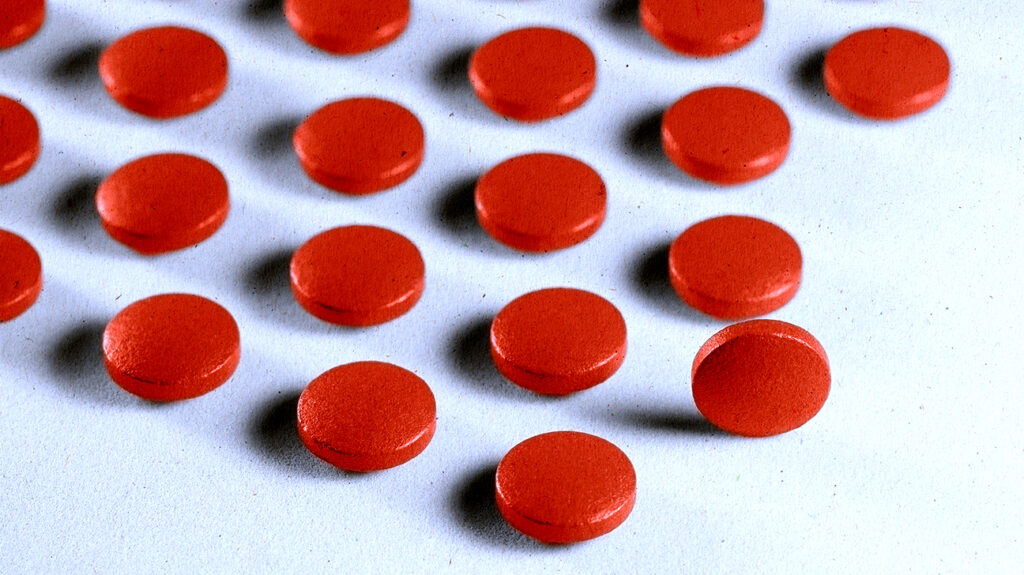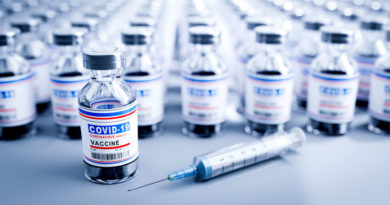COVID-19: Another malaria drug shows promise
 Share on Pinterest
Share on Pinterest- An antimalarial is the latest drug that researchers have identified as a potential COVID-19 treatment.
- In a laboratory study, scientists found that atovaquone inhibited replication of SARS-CoV-2 in human lung cells.
- The effects occurred in vitro against Alpha, Beta, and Delta variants.
- Clinical trials are necessary to see whether it is possible to repeat these results in people with COVID-19.
With Omicron spreading at an alarming rate and the global deaths from COVID-19 now well over 5 million, the hunt for effective treatments against COVID-19 is becoming ever-more urgent.
Scientists have considered many drugs, but few have realized any early promise. Even molnupiravir, hailed by many as a COVID-19 game-changer, does not seem to be living up to the hype. In clinical trials, the real-world efficacy in preventing severe COVID-19 symptoms is significantly lower than initial trials suggested.
Monoclonal antibodies have some clinical benefits in preventing severe COVID-19 symptoms, but healthcare professionals have to administer them intravenously. In severely ill patients on ventilators, dexamethasone, an oral steroid, can reduce deaths from COVID-19 by up to a third.
So the search is still on for effective oral treatments that can prevent or minimize symptoms. Many researchers are testing licensed drugs that they might be able to repurpose to treat or prevent COVID-19.
Now, a Danish laboratory study has published results suggesting that atovaquone has a protective effect against coronavirus in human lung cells. Atovaquone is part of the antimalarial Malarone, which doctors have used for the treatment and prevention of malaria since 1999.
Speaking to Medical News Today, Dr. William Schaffner, a professor of infectious diseases at the Vanderbilt University Medical Center, Nashville, TN, welcomed the study: “Everybody’s excited when a drug that’s been in use before [looks promising in the laboratory] because obviously, we have a great deal of clinical experience to back it up. It’s already licensed. But now we have to see if it really does work in people. That’s a giant step.”
The study by a team at Aarhus University found that atovaquone blocked infection from Alpha, Beta, and Delta variants of COVID-19 in human lung cells in vitro.
However, Dr. Schaffner urged caution: “Of course, it’s a laboratory study. Which means it is provocative but early. I hate to put it in the same category, but [I] was just thinking of another study that looked good in the lab but fizzled — the hydroxychloroquine study.”
Researchers instigated the study following anecdotal evidence from Canada that people taking Malarone appeared to have some resistance to COVID-19. Either they were not contracting the virus, or the symptoms were not severe if they did.
Researchers have investigated the antiviral potential of atovaquone previously. A 2019 study showed that it inhibited the reproduction of the Zika virus in vitro. In this study, researchers suggested that atovaquone was inhibiting RNA replication, thus preventing the virus from reproducing.
Another laboratory study from 2020 found that the drug inhibited the fusion of Zika virus and dengue virus to host cell membranes. Viruses fuse to cell membranes to invade host cells.
The researchers posited several possible mechanisms for atovaquone’s observed effect on SARS-CoV-2. They suggest that it may inhibit viral replication, prevent binding of the spike protein to the ACE2 receptors, and prevent the expression of inflammatory markers.
“I don’t want to criticize the study, but I’m not convinced it’s an enormous step forward. I’d like to be proved wrong. I’d like the clinical data to come up that it really does something.” Dr. Jonathan Stoye, a virologist at the Francis Crick Institute in London, United Kingdom, told MNT.
He added: “[What is c]oncerning in this most recent study is that it didn’t come up with one mechanism. It sort of suggests there’s a bit of this and a bit of that and a bit of something else. I don’t find that very persuasive.”
Two small clinical trials of atovaquone are already underway. One, a stage 2 trial in Texas, finished in January this year, but the results were not publicized. This raises questions for Dr. Stoye: “I would like to see some data from this clinical trial. I just wonder what it actually showed. You would have thought that if it showed something, we would have heard of it.”
Whether researchers are planning larger clinical trials is unknown. As Dr. Schaffner commented: “Leaping to a clinical trial is a very, very large investment. You have to be very convinced that something is going to work.”
“I have reservations about the importance of this study. That’s my bottom line.”
– Dr. Jonathan Stoye
Atovaquone may have potential, but more evidence is needed. The hunt for effective COVID-19 treatments continues.
For live updates on the latest developments regarding the novel coronavirus and COVID-19, click here.


